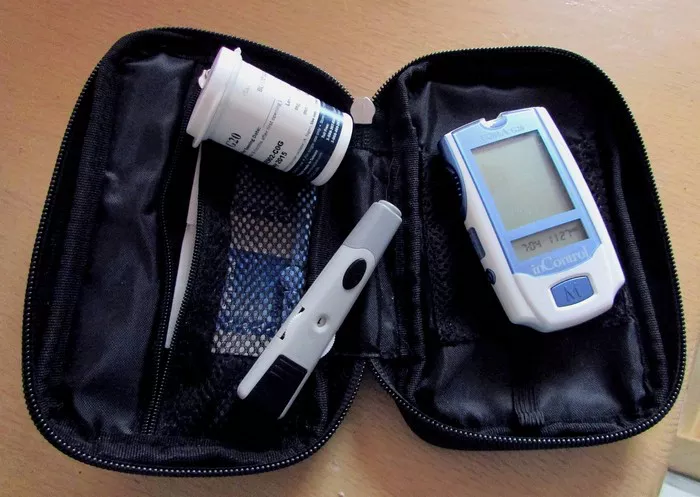Carbohydrates are one of the main macronutrients found in foods and beverages. They play a crucial role in providing energy for the body, particularly for the brain and muscles. However, when it comes to diabetes management, carbohydrates often become a focal point due to their direct impact on blood glucose levels. This article aims to explore whether diabetics need to consume carbohydrates and, if so, how to manage carbohydrate intake effectively to maintain optimal health.
What Are Carbohydrates?
Carbohydrates, commonly referred to as carbs, are sugars, starches, and fibers found in fruits, grains, vegetables, and dairy products. They are a vital source of energy, and their consumption triggers the release of insulin, a hormone necessary for glucose uptake by cells. Carbohydrates are categorized into three main types:
Sugars: Simple carbohydrates found naturally in foods such as fruits, vegetables, milk, and dairy products, as well as those added during processing and refining.
Starches: Complex carbohydrates found in foods like bread, rice, pasta, and certain vegetables like potatoes and corn.
Fibers: Complex carbohydrates that the body cannot digest. Found in fruits, vegetables, whole grains, and legumes, fibers are essential for digestive health and can help regulate the body’s use of sugars.
The Relationship Between Carbohydrates and Blood Glucose Levels
For diabetics, managing blood glucose levels is a critical aspect of disease management. When carbohydrates are consumed, they are broken down into glucose, which enters the bloodstream. This rise in blood glucose levels signals the pancreas to release insulin, allowing glucose to enter cells and be used for energy. In people with diabetes, this process is impaired:
Type 1 Diabetes: The body’s immune system attacks insulin-producing cells in the pancreas, leading to little or no insulin production. Carbohydrate intake directly affects blood glucose levels, requiring careful monitoring and insulin administration.
Type 2 Diabetes: The body becomes resistant to insulin or doesn’t produce enough insulin. Managing carbohydrate intake can help control blood glucose levels and improve insulin sensitivity.
Gestational Diabetes: Occurs during pregnancy when the body cannot produce enough insulin. Carbohydrate management is crucial to prevent complications for both mother and baby.
Do Diabetics Need to Eat Carbohydrates?
The short answer is yes, diabetics do need to eat carbohydrates. However, the type, amount, and timing of carbohydrate consumption must be carefully managed to maintain blood glucose levels within a target range.
Essential Reasons for Carbohydrate Consumption
Energy Production: Carbohydrates are the body’s primary energy source. Restricting carbs too much can lead to fatigue, dizziness, and poor concentration.
Nutrient Intake: Many carbohydrate-rich foods are also high in essential nutrients such as vitamins, minerals, and fiber. For instance, fruits and vegetables provide antioxidants, vitamins C and A, and fiber, which are vital for overall health.
Preventing Hypoglycemia: For individuals on insulin or certain medications, consuming adequate carbohydrates is necessary to prevent hypoglycemia (low blood sugar levels), which can be dangerous if not addressed promptly.
Balanced Diet: A well-rounded diet that includes carbohydrates helps maintain a balance of macronutrients, supporting overall health and metabolic function.
Managing Carbohydrate Intake in Diabetes
While carbohydrates are necessary, it’s important to choose the right types and quantities to manage diabetes effectively. Here are some strategies for managing carbohydrate intake:
Carbohydrate Counting
Carbohydrate counting is a method used to plan meals and snacks based on the carbohydrate content of foods. It involves tracking the number of grams of carbohydrates consumed and adjusting insulin doses accordingly (for those using insulin). This approach helps maintain blood glucose levels within the target range.
Steps to Carbohydrate Counting:
- Learn to Read Nutrition Labels: Understanding how to read and interpret nutrition labels is crucial for accurate carbohydrate counting.
- Use Carbohydrate Counting Tools: Utilize apps, books, and online resources that provide carbohydrate information for various foods.
- Plan Meals and Snacks: Distribute carbohydrate intake evenly throughout the day to avoid spikes in blood glucose levels.
Choosing Low Glycemic Index (GI) Foods
The glycemic index (GI) measures how quickly a carbohydrate-containing food raises blood glucose levels. Foods with a low GI are digested and absorbed more slowly, leading to a gradual rise in blood glucose levels. Incorporating low-GI foods can help in managing diabetes more effectively.
Examples of Low-GI Foods:
- Non-Starchy Vegetables: Leafy greens, broccoli, cauliflower, peppers, and tomatoes.
- Whole Grains: Brown rice, quinoa, barley, and oats.
- Legumes: Beans, lentils, and chickpeas.
- Fruits: Apples, berries, pears, and citrus fruits.
Balancing Carbohydrates with Protein and Fat
Combining carbohydrates with protein and fat can slow down the digestion and absorption of carbohydrates, leading to a more gradual rise in blood glucose levels. This approach also helps in maintaining satiety and reducing the likelihood of overeating.
Meal Composition Tips:
- Pair Fruits with Nuts: Combine an apple with a handful of almonds.
- Add Protein to Meals: Include chicken, fish, tofu, or legumes with meals that contain carbohydrates.
- Incorporate Healthy Fats: Use olive oil, avocado, or nut butters to add healthy fats to meals.
Monitoring Blood Glucose Levels
Regular monitoring of blood glucose levels is essential for understanding how different types and amounts of carbohydrates affect individual blood glucose responses. Continuous glucose monitors (CGMs) and blood glucose meters can provide valuable data to adjust dietary choices and insulin doses.
Personalized Nutrition Plans
The approach to carbohydrate consumption should be personalized based on individual health status, preferences, and lifestyle. Working with a registered dietitian or a certified diabetes educator can help in creating a tailored nutrition plan that meets specific needs and goals.
Considerations for Personalized Plans
Medical History: Taking into account any coexisting conditions such as hypertension, kidney disease, or cardiovascular disease.
Lifestyle and Preferences: Incorporating personal food preferences, cultural considerations, and lifestyle factors.
Physical Activity Level: Adjusting carbohydrate intake based on the level and intensity of physical activity, as exercise impacts blood glucose levels.
Medication and Insulin Use: Coordinating carbohydrate intake with medication and insulin regimens to optimize blood glucose control.
Carbohydrate Recommendations for Diabetics
While individual needs vary, general recommendations can serve as a starting point for managing carbohydrate intake in diabetes:
Total Carbohydrate Intake: There is no one-size-fits-all amount, but a common recommendation is that carbohydrates should make up about 45-65% of total daily calories. For some individuals, a lower carbohydrate intake may be beneficial.
Consistent Carbohydrate Intake: Spreading carbohydrate intake evenly throughout the day can help in maintaining stable blood glucose levels.
Focus on Quality: Prioritize high-fiber, nutrient-dense carbohydrates over refined and processed carbs.
Common Myths About Carbohydrates and Diabetes
There are several misconceptions about carbohydrates and diabetes that can lead to confusion and mismanagement. Let’s address some of these myths:
Myth 1: Diabetics Should Avoid Carbohydrates Completely
Reality: Carbohydrates are essential for energy and overall health. The key is to choose the right types and amounts of carbohydrates.
Myth 2: All Carbohydrates Are Bad
Reality: Not all carbohydrates have the same impact on blood glucose levels. Whole grains, fruits, vegetables, and legumes are nutritious and can be included in a diabetic diet.
Myth 3: Low-Carb Diets Are the Only Way to Manage Diabetes
Reality: While low-carb diets can be effective for some individuals, they are not the only approach. Balanced diets that include carbohydrates can also support effective diabetes management.
Special Considerations for Different Types of Diabetes
Different types of diabetes may require specific considerations when it comes to carbohydrate consumption:
Type 1 Diabetes
Individuals with Type 1 diabetes need to balance carbohydrate intake with insulin administration. Carbohydrate counting and insulin dose adjustments are critical for maintaining blood glucose control. Working with a healthcare provider to understand the insulin-to-carbohydrate ratio is essential.
Type 2 Diabetes
For Type 2 diabetes, the focus is often on improving insulin sensitivity and managing weight. A diet that includes high-fiber carbohydrates, lean proteins, and healthy fats can support these goals. Reducing overall carbohydrate intake may be beneficial for some individuals, but it should be done under professional guidance.
Gestational Diabetes
Pregnant women with gestational diabetes need to carefully manage carbohydrate intake to support both their health and the health of the baby. Small, frequent meals that include balanced carbohydrates can help in maintaining stable blood glucose levels.
Conclusion
Carbohydrates play a significant role in the diet of individuals with diabetes. While they are essential for providing energy and nutrients, their consumption requires careful management to maintain blood glucose control. By understanding the types of carbohydrates, practicing carbohydrate counting, choosing low-GI foods, and balancing carbohydrates with proteins and fats, diabetics can effectively manage their condition and maintain a healthy lifestyle.
Personalized nutrition plans and regular monitoring of blood glucose levels are crucial for tailoring carbohydrate intake to individual needs. Dispelling myths and focusing on the quality and quantity of carbohydrates can empower diabetics to make informed dietary choices. Ultimately, a well-balanced diet that includes carbohydrates, combined with proper medical management, can support optimal health and well-being for individuals with diabetes.
Related topics:
The Impact of the Keto Diet on Diabetes Management

























